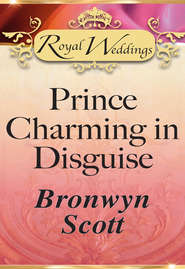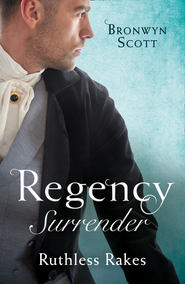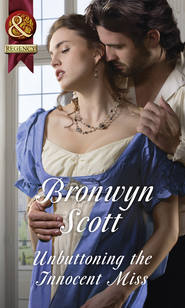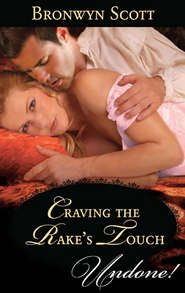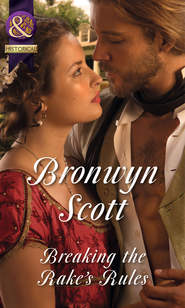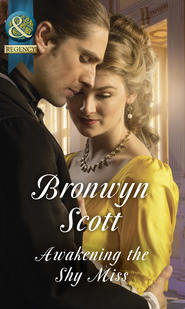По всем вопросам обращайтесь на: info@litportal.ru
(©) 2003-2024.
✖
The Secrets Of Lord Lynford
Автор
Год написания книги
2019
Настройки чтения
Размер шрифта
Высота строк
Поля
Eaton’s gaze slipped unobtrusively around the circle gauging the group’s reaction. He wasn’t the only one concerned about Vennor’s course of action. The thugs who had mindlessly murdered Newlyn and the Duchess had left behind no clue. They might never be caught. He didn’t want Vennor disappointed. At what point did serving justice become an obsession? Would Vennor recognise that point when it arrived? How could he leave his friend alone to manage his grief, knowing that Vennor would obsess? Yet how could he stay away from Cornwall much longer? He had plans, too; his school, the musical conservatory, was set to open this autumn. His legacy was waiting. He’d not intended to stay in London long this year. He’d come up to town with the intention of supporting Marianne Treleven’s debut as a family friend, and then returning to Porth Karrek immediately. But it only took one look at Vennor’s face to make the decision to stay. His friend couldn’t be left on his own or he’d work himself into oblivion.
‘If that’s what you’re going to do, we’ll stay with you.’ Eaton scanned the group to see heads nodding in agreement. They would all put their plans on hold for their friend.
‘No, that’s not necessary,’ Vennor argued. ‘Eaton, your conservatory needs you. You cannot spare any more time away from home. I know what a sacrifice it would be for you, don’t tell me otherwise. My father would not approve. He supported your school and he’d not want it delayed on his account. You’ve devoted the last five months to preparing—you even cancelled your trip to Italy and I know how much that meant to you.’ Vennor shook his head. ‘I won’t have you throw it all over just to play nursemaid.’ He fixed Cassian with a stern look. ‘I won’t have you staying either. You can’t build your Cornish pleasure garden from London. Besides, your fathers will be here. I’ll hardly be alone.’
It wasn’t the same, though, Eaton thought. When grief closed in, Vennor would want a friend his own age, not his father’s compatriots. Yet how like Vennor to think of others first. They all had their gifts and that was Vennor’s. He understood people the way Inigo understood money: intuitively. But Vennor could not be allowed to win this argument.
Eaton was about to launch his rebuttal when Inigo settled it. ‘We’ll be here. Father and I have banking business. We would be staying regardless to see how Parliament handles some new investment legislation.’
‘Inigo can stay. I will allow that. Are you satisfied, Eaton?’ Vennor smiled his gratitude and the knot of worry in Eaton’s gut eased. Inigo would look after their friend with the same dedication with which he did everything else.
In the wake of the decision, silence claimed the group. Brandy glasses were nearly empty again and the business of helping Vennor take on his ducal responsibilities was settled. Eaton was aware of the mantel clock ticking, loud and insistent, a reminder that it was time to move on, that there was nothing more that could be done now. It was time for the four friends to say goodbye and go their separate ways. He and Cassian would leave early tomorrow for their journey home to Cornwall. Inigo would settle back into his London habits. Vennor would establish new routines.
Nothing would be the same.
Vennor would be invested as a duke the next time they met, with the accompanying ducal responsibilities. Vennor would marry soon and that would change the equation entirely. This was a last moment, the ending of a chapter. Part of the adventure of living, Eaton supposed, although it didn’t seem very adventurous at the moment. On the contrary, it seemed sad. Something was being mourned in this very room as they took another step deeper into adulthood, another step further away from their childhood. A piece of Eaton’s soul rebelled at the notion. Hadn’t he lost enough already? Need he lose that, too? But it was inevitable that he would. It was the way of life for dukes. His friends would marry in time, not only Vennor. Would they all still be close even when their affections were shared with another beyond their circle? When a wife and family claimed their attentions? Their fathers had managed it. But perhaps that was because they all had wives and family in common. Eaton would likely never marry. Would that decision make him an outsider? They would never intentionally exclude him, but it might happen accidentally.
Cassian shifted in his chair, casting a quizzing glance at Eaton. What next? They were all looking to him. He would have to be the one to do it. Among the four of them, he was the ringleader, the adventure master. A swift bolt of memory took him, of blue skies and rolling surf, of four boys who’d spent summers combing the Cornish beaches, playing at being smugglers, or pirates, sometimes soldiers fighting the French fleet, or treasure hunting. He remembered the summer he’d found the map, the last great summer before the trajectory and expectations of his life had subtly veered. Of course, the four of them had not known it would be their last, any more than Richard Penlerick had known when he’d sat down for breakfast a week ago that he’d not see his bed that night. It had been a good summer, full of real adventure, even if they’d never found the treasure. He must have led them through every tidal cave along the Porth Karrek beaches. There’d been bonfires and camp outs, nights of star gazing and the whispered secrets of newly minted adolescence. They had all looked to him then and they were looking to him now to take the next step, to help them say goodbye.
Eaton raised his glass, searching for words against the emotion crowding his throat. They needed hope right now, they needed to know that as much as things were about to change, the things that mattered would stay the same, a piece of constancy they could cling to in a world that only promised uncertainty. He was suddenly hungry to be home at Falmage Hill, home in Porth Karrek surrounded by the familiar: his new school, his orangery, his favourite paths in the Trevaylor Woods, his science experiments, his hound, Baldor. He’d been gone too long. ‘It’s time, gentlemen. A last drink for the road. If there’s one lesson this week has taught us, it’s that life is surprising and short. We are guaranteed nothing. We already drank to the past, let us now drink to the future. Here’s to our pursuits. May all of them be served through the best of our efforts in the time that we have. My friends, here’s to making every minute count.’ Especially when every minute was all one had.
Chapter One (#uc30a7955-fd78-5bef-ad82-451bb9ff76f8)
Porth Karrek, Cornwall—September 1823
Every minute mattered now that the school’s opening was upon them. Eaton pushed up his sleeves and gripped the oak table. At the other end, his headmaster, the renowned composer Cador Kitto, gave a nod and, with a mutual grunt, they lifted the heavy table. Around them, workmen painted and swept with feverish urgency. School began in three days and some students would arrive early to be on hand for the open house in two. The past few days it had been all hands on deck, even his—especially his. Eaton didn’t believe in leading idly. He refused to stand back, shouting orders to others, without lending his own efforts to the project. Besides, staying busy made it possible to forget other unpleasant realisations, albeit temporarily; that Richard Penlerick was dead, life was short and there was nothing he could do about either.
They manoeuvred the table into place at the front of the room and set it down with a relieved thud. Damn, but good oak was heavy. Eaton swiped at his brow and Cador laughed. Eaton groaned. ‘Did I just smear dirt across my forehead?’
‘Yes, but no matter. There are no ladies about to see you.’ Cador winked.
‘Just for that, you can unpack the books.’ Eaton chuckled.
‘Oh, no, I’ve got instruments to oversee.’ Cador wiped his hands and nodded towards the door at the arrival of Eaton’s secretary. ‘Looks like you’ve got business to attend to.’
Eaton turned, stifling a sigh. He far preferred physical labour to the never-ending tedium of paperwork, especially when there was so much to get done, so much to forget. It was too easy for his mind to wander into difficult territory when he was doing paperwork. He found a smile; it wasn’t the secretary’s fault. ‘What is it, Johns?’
‘There’s someone asking to see you, my lord.’ Johns was young, hired to help with the record-keeping and correspondence at the school, and today he looked every inch of his mere twenty years. Johns shifted from foot to foot, his cheeks tinged a fading pink which Eaton didn’t think was due to the exertion of the stairs. Whoever was waiting had been quite insistent.
‘Do they have an appointment?’ Eaton looked about for a rag to wipe his hands on. Johns would have to learn how to be a better gatekeeper.
‘No, my lord.’
‘Has one of the boys arrived early?’ Eaton gave up on a rag. His mind was already working through options. There were rooms ready on the third floor if needed and the cook could be called in to prepare food a day earlier than planned, although provisions weren’t expected to arrive until tomorrow...
Johns cleared his throat. ‘It’s one of the patrons, my lord. One of the widows.’ Johns’s tone was urgent now. Some of the insistence that had been pressed upon him by the unexpected visitor was now being relayed.
Eaton relaxed, although he did wonder what had upset his secretary. Two of the school’s patrons were wealthy widows and he couldn’t imagine either of them being the source of such angst. ‘Is it Mrs Penhaligon? Has she come to see that her piano is properly installed?’ Austol Penhaligon’s widow had donated her expensive Sébastien Érard double action keyboard piano, much to Cador’s delight. The other, a Mrs Blaxland, was an extraordinarily rich woman from Truro, whom Eaton had never met. He’d assumed her age, which must be considerable, had brought about an inability to travel. Her husband, Huntingdon Blaxland, had been sixty-five when he died and that had been five years ago. She likely let her money do the travelling for her these days. Thanks to her generous donations, the boys would have the finest music instructors Cador Kitto had been able to find, acquired from the Continent on his summer honeymoon.
Soft fabric rustled behind Johns, giving Eaton his only warning before no-nonsense female tones announced, ‘No, not Mrs Penhaligon, I’m afraid.’ Apple-green skirts and shiny chestnut hair swept past Johns with an imperious air that smelled of peach orchards and vanilla, the very best and last of summer. ‘I’m Eliza Blaxland.’ She ran a gloved hand along the surface of the oak table, collecting dust on the pristine tip of one finger. ‘And you, Lord Lynford, have some accounting to do.’
Eaton gave her an assessing stare. This haughty virago was Eliza Blaxland? What had the elderly mining magnate been doing with a woman like her? She was no frail grey-haired widow, practising philanthropy from her armchair. This was an elegant, sophisticated woman in her early thirties with decades of life and fire still left to her, a woman who valued being in control. If so, she’d have to adjust. He was more than happy to take her money for the school, but not her orders. He was the Marquess of Lynford and his deference was given sparingly. He could not be bought, nor could he be intimidated. ‘Accounting, Mrs Blaxland? In what way? I was unaware we had an appointment, let alone any accounting to do.’ He was usually the one who did the intimidating. How interesting that she thought the interaction might go differently. She needed to learn that her cheques did not allow her carte blanche in the school and that included showing up two days early for the open house.
She was not daunted by his cool reception. Instead, she returned his assessing stare with one of her own, making him acutely aware that she was entirely his antithesis. While he stood before her sans waistcoat, jacket and cravat, shirtsleeves wrinkled and rolled with a belatedly remembered smudge of dirt on his forehead, she was all elegant summer perfection in her apple-green walking ensemble of India muslin, matched head to toe from the brim of her green-crepe chapeau Lyonnaise to the peeping toes of her green half-boots. ‘I disagree. You are two days from opening and this place is a madhouse.’ She held up the dusty finger of her glove in reminder. ‘My money did not pay for chaos.’
Eaton summoned up a smile from his repertoire, the one known for successfully impressing older, more conservative women who occasionally found his love of adventure a tad too liberal—until they tried it for themselves. ‘I assure you, all will be in order for the open house.’ She was not convinced. Her gaze roved about the room, taking in the painters, the movers, the sweepers, casting doubt and disappointment wherever her eyes landed. Eaton grimaced. He needed to get her out of this room. There were plenty of spaces that were finished. It was too bad she hadn’t found him in one of those. ‘Might I offer you a tour, Mrs Blaxland?’ The woman was likely to poke her nose into all the rooms on her own—at least this way he could keep an eye on her. He could control a tour, although it would cost him an hour of work to squire her around. Still, better an hour of work lost than a lucrative patron. Disappointed patrons often bred other disappointed patrons. ‘On our tour, we can discuss whatever it is you’re doing here.’ It was a subtle reminder that she was the one in the wrong, the one who’d shown up uninvited.
He gestured to Cade, giving her no chance to refuse. ‘Let’s start with an introduction to our headmaster, Cador Kitto, lately from Vienna. He’s composed at the Hapsburg court.’
Cade, with his wavy blond locks and Continental élan, bowed over her gloved hand with a courtly aplomb that made Eaton envious of the man’s slender elegance. ‘A pleasure to meet you at last, Mrs Blaxland. Our students will benefit greatly from your patronage.’ A little dose of Cade could go a long way in smoothing ruffled feathers—at least that was what Eaton was hoping for, particularly when he didn’t know what had ruffled her feathers in the first place.
‘What you describe as chaos, Mrs Blaxland, I consider progress. Allow me to show you.’ They left Cade and the busyness of the classroom behind. He toured her through the students’ rooms on the third floor, showing her chambers with neatly made beds, braided rugs, dust-free wardrobes and bright white curtains hanging at the windows. The rooms smelled of lemon polish and linseed oil. ‘Mr Kitto’s wife designed the dorms,’ Eaton explained, making no effort to hide his pride. ‘She believes the homelier the place feels, the more comfortable the boys will be here.’
‘And the less likely they will be to leave,’ Mrs Blaxland translated in more blunt terms. ‘Tell me, how is enrolment? Do we have enough boys to fill these chambers?’
Eaton shut the last door behind them and directed her back towards the staircase. ‘We have two-thirds of the rooms accounted for, which I think is excellent for a first semester.’ Twenty-one boys ranging in age from seven to fourteen would be arriving the day after the open house. ‘Once word spreads regarding the quality of student and the superiority of musical education we offer at the Cornish Academy, we will reach capacity soon enough,’ he assured her, but her sharp green eyes met his assurances with questions.
‘Do you have quality students?’ she asked pointedly. ‘I think the challenge of such a school is not the idea of it, but the location, as I’ve mentioned before in correspondence. Why would a person of any talent want to travel to the wilds of Cornwall for a musical education when one could be in London? Or go abroad? I fear those who have choices will not choose the academy at Porth Karrek.’
She was bold-tongued, her comments blunt and bordering on rude. Perhaps that was simply how it was in business circles where money mattered more than manners. Eaton chose to be impressed with her analysis rather than offended by the implication that the academy would only be capable of drawing mediocre students.
‘The talent you seek will come if you and the other patrons tell them to. Quality enrolment is all of our obligation.’ Richard Penlerick had been adamant on that issue. He’d been promoting the academy in London just days before the murder. ‘One cannot simply throw money at a project and expect that to be enough to ensure success.’ The words came out harshly against the sudden tightness of Eaton’s throat, but he wouldn’t apologise for them. If Eliza Blaxland took his response as a scolding, then so be it. He wasn’t entirely sure he didn’t mean it as one. He was the son and heir of a wealthy family. If it had only been about money, he could easily have bankrolled the school entirely by himself. He didn’t need patrons’ funds the way a struggling orphanage in St Giles did. He needed the names and reputations behind the funds.
Eaton cleared his throat and offered Richard Penlerick’s often-voiced sentiment. ‘The quality of our students will depend on the quality of our patrons. That is why I sought you out in particular. You are well known in Cornish circles for your appreciation of education.’ Even if those circles had failed to convey how young she was.
At the bottom of the stairs he showed her into the drawing room where the Sébastien Érard piano stood in pride of place. ‘This is where our recitals will be held. Mr Kitto will perform at the open house, of course.’ He smiled, reminding her he’d done his part in securing a well-known musician for headmaster, one with a name that would draw talented students.
He allowed her to appraise the Sébastien Érard with her sharp eyes before he got to the heart of the matter. ‘Surely all of this checking up could have been handled at the open house. Why have you really come, Mrs Blaxland?’ Did she have a student she was hoping to get admitted? Did she have an instructor who needed to be hired? Whoever they were, they would have to earn their place here, no matter how much money she donated. Kitto wanted only the best. They wouldn’t attract the best if they took in just anyone.
She gave him a polite smile he did not mistake for friendliness, although it did serve to warm him none the less. ‘I have found in the years of running my late husband’s mines that scheduled appointments can often result in misleading impressions. When one arrives unannounced, one sees a clearer representation of the truth.’ She was already a fortress of perfection in her dress and in her speech, but in her directness she was nigh on impenetrable. Eaton felt the urge to penetrate that directness, to lay siege to its walls.
‘You mean an ambush, Mrs Blaxland?’ Sparring with her was quite a warming exercise indeed. A part of him that had been dormant since returning from London was waking up.
‘An ambush assumes someone can be taken by surprise, that someone lets his guard down,’ she countered smoothly. ‘If one is always prepared, one cannot be caught unawares.’
When was the last time Eliza Blaxland had been taken unawares? From her cool façade, he would guess it had been a while, if ever. It was hard to imagine anyone got anything past her. Eaton would take that as a challenge—not that he wanted to take advantage, but he would like to surprise her, just to prove to her that it could be done. How would she react when things were out of her control?
He studied the flawless perfection of her face, its smooth contours with its elegantly set nose, green eyes and that mouth—that gorgeous pink mouth with its full, kissable lower lip. His gaze lingered there while his thoughts drifted. What would bring a crease to those perfect features? What might fluster her well-ordered world? Had old Huntingdon Blaxland ever flustered her, aside, perhaps, from dying? Would a kiss be enough to offset that world? She was a widow, after all. He could presume she’d been kissed before. Would she like to be kissed again? He found he would like to pursue that course of action. Between Richard Penlerick’s death and the school, it had been a while since he’d felt a spark of interest.
They were hardly the thoughts one ought to have about a wealthy patroness, yet when the patroness was so aloofly, coolly attractive, it seemed a natural progression of thought to wonder, what if? They returned to the main hall, the front door just feet away, providing a less-than-subtle opportunity to bid Mrs Blaxland farewell and get on with his day. ‘If there’s nothing else, I’ll leave you here. As you have already ascertained, there’s much to be done.’
‘There is one more thing.’ She gave him another long perusing stare with those intelligent eyes. ‘I thought you’d be older. I was unaware Bude’s heir was so...young.’ She was implying that perhaps he might not be up to the task of overseeing a school, that a man of his age and station was better suited to the frivolous pursuits of London.
‘Twenty-eight is young?’ he queried with a sardonic cock of a dark brow. It was an odd remark coming from a woman who couldn’t be more than thirty-three, but time and age were different for females. ‘It’s been some time since anyone has thought of me as young. Good day, Mrs Blaxland. I will look forward to seeing you at the reception.’ He gave her a small bow in farewell. ‘I assure you that you needn’t worry. I am in my prime.’ He’d been unable to resist the final remark. Intuition suggested that no one teased Mrs Blaxland and someone ought to. People didn’t build impregnable fortresses around themselves without reason. He was intrigued as to what her reason might be.
‘You most certainly are,’ she acknowledged with a slight, indifferent nod of her head, but beneath that cool exterior, something akin to interest sizzled and flared in her gaze before it was snuffed out by practice and perhaps practicality. But it was too late. Eaton smiled over his little victory. She’d already given herself away. Eliza Blaxland wasn’t as unaffected or as distant as she appeared.
Chapter Two (#uc30a7955-fd78-5bef-ad82-451bb9ff76f8)






